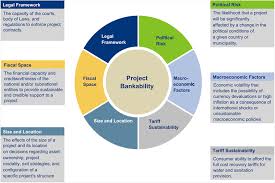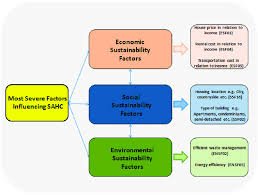

Affordable housing is a critical aspect of Nigeria’s development agenda, aimed at addressing the housing deficit and improving living conditions for millions of Nigerians. As the country grapples with rapid urbanization and population growth, establishing a robust legal framework for affordable housing projects is essential for ensuring successful implementation, sustainability, and equity. This article explores the legal framework governing affordable housing projects in Nigeria, highlighting key laws, regulations, and strategies for effective implementation.
The Significance of Affordable Housing in Nigeria
Affordable housing refers to residential properties that are within the financial reach of lower and middle-income households. In Nigeria, the need for affordable housing is pressing due to:
- Population Growth: Rapid urbanization and a growing population have intensified the demand for affordable housing.
- Housing Deficit: A significant gap exists between the demand and supply of affordable housing, exacerbated by inadequate infrastructure and financing.
- Economic Development: Affordable housing is crucial for improving living standards, promoting social stability, and fostering economic growth.
To address these challenges, Nigeria requires a well-defined legal framework to guide the development and implementation of affordable housing projects.
Key Components of the Legal Framework
1. Constitutional Provisions: The Nigerian Constitution lays the foundation for housing rights and development policies. Key provisions include:
- Fundamental Objectives: The Constitution emphasizes the need for government to promote the welfare of its citizens, including access to adequate housing.
- Government Responsibilities: It mandates the government to create policies and frameworks to improve living conditions and provide social amenities.
Although the Constitution does not explicitly address affordable housing, it provides a basis for legislative and policy interventions.
2. National Housing Policy: The National Housing Policy is a comprehensive framework aimed at addressing housing issues in Nigeria. Key elements include:
- Housing Delivery: The policy outlines strategies for increasing the supply of affordable housing, including public-private partnerships and innovative financing mechanisms.
- Slum Upgrading: It emphasizes the need to improve existing informal settlements and upgrade slum areas to enhance living conditions.
The National Housing Policy serves as a strategic guide for implementing housing projects and aligning various stakeholders.
3. Land Use Act of 1978: The Land Use Act regulates land ownership and use in Nigeria, which is crucial for affordable housing projects. Key provisions include:
- Land Ownership: It vests control of land in the government, requiring developers to obtain land use permits and approvals.
- Land Allocation: The Act provides mechanisms for allocating land for residential and development purposes, including affordable housing.
Navigating the Land Use Act is essential for securing land for housing projects and ensuring compliance with legal requirements.
4. Federal Mortgage Bank of Nigeria (FMBN): The Federal Mortgage Bank of Nigeria (FMBN) plays a pivotal role in providing affordable housing finance. Key functions include:
- Housing Finance: FMBN provides mortgage loans and financial support to individuals and developers for affordable housing projects.
- Policy Implementation: It implements government policies related to housing finance and development.
The FMBN’s role in providing financial resources and support is crucial for the successful implementation of affordable housing projects.
5. The National Housing Fund (NHF) Act: The National Housing Fund (NHF) Act establishes a fund to support housing development. Key aspects include:
- Contributions: It mandates contributions from employers, employees, and self-employed individuals to the NHF.
- Loan Provision: The Act provides for the disbursement of loans from the fund to finance affordable housing projects.
The NHF Act is a key component of Nigeria’s housing finance system, providing essential resources for affordable housing initiatives.
6. Building and Construction Regulations: Various building and construction regulation govern the standards and practices in the construction industry. Key regulations include:
- National Building Code: Establishes standards for building safety, quality, and construction practices.
- Local Building Codes: Local authorities may have additional codes and standards specific to their regions.
Adhering to building regulations ensures the safety and quality of affordable housing projects and compliance with legal standards.
Strategies for Effective Implementation
1. Public-Private Partnerships (PPPs): Public-private partnerships are vital for financing and implementing affordable housing projects. Strategies include:
- Collaborative Models: Engage private developers in financing, constructing, and managing affordable housing projects in partnership with government agencies.
- Incentives: Provide incentives such as tax breaks or land grants to encourage private sector participation.
Successful PPP models, such as the Lekki Affordable Housing Project, demonstrate the effectiveness of collaboration between public and private sectors.
2. Innovative Financing Mechanisms: Innovative financing mechanisms are essential for overcoming funding challenges. Strategies include:
- Housing Bonds: Issue housing bonds to raise capital for large-scale affordable housing projects.
- Microfinance: Utilize microfinance institutions to provide small loans for affordable housing construction and renovation.
For example, the use of housing bonds by the Lagos State Government has facilitated the development of affordable housing projects.
3. Community Participation: Community participation ensures that housing projects meet the needs of the intended beneficiaries. Strategies include:
- Consultation: Engage communities in the planning and design of affordable housing projects to ensure they align with local needs and preferences.
- Feedback Mechanisms: Establish mechanisms for ongoing feedback and involvement throughout the project lifecycle.
Community-driven projects, such as the Abuja Urban Renewal Initiative, highlight the importance of local involvement in housing development.
4. Capacity Building and Training: Capacity building and training are essential for improving the effectiveness of affordable housing projects. Strategies include:
- Training Programs: Provide training for stakeholders, including government officials, developers, and community leaders, on housing policies, construction practices, and project management.
- Knowledge Sharing: Facilitate knowledge sharing and best practices to enhance the implementation of affordable housing projects.
Training initiatives by organizations like the Nigerian Institute of Building (NIOB) contribute to capacity building in the construction industry.
Challenges and Solutions
1. Regulatory and Bureaucratic Hurdles: Regulatory and bureaucratic hurdles can delay project implementation. Solutions include:
- Streamlining Processes: Simplify and expedite regulatory approvals and land acquisition processes to facilitate project execution.
- Digital Platforms: Implement digital platforms for managing permits, approvals, and compliance.
2. Financial Constraints: Financial constraints can hinder the execution of affordable housing projects. Solutions include:
- Diversified Funding Sources: Explore diverse funding sources, including international grants, private investments, and innovative financing mechanisms.
- Cost Management: Implement cost-effective construction methods and materials to reduce project costs.
3. Land Use and Ownership Issues: Land use and ownership issues can complicate project implementation. Solutions include:
- Clear Title Documentation: Ensure clear title documentation and address land disputes through legal channels.
- Government Support: Seek government support for land acquisition and allocation.
Conclusion
The legal framework for affordable housing projects in Nigeria is a multifaceted system involving constitutional provisions, national policies, regulatory laws, and financial institutions. By understanding and navigating this framework, stakeholders can effectively address the housing deficit and contribute to the nation’s development. Key strategies such as public-private partnerships, innovative financing, community participation, and capacity building are essential for successful implementation. Despite challenges such as regulatory hurdles, financial constraints, and land use issues, effective management and strategic planning can drive the success of affordable housing projects, improving living conditions for millions of Nigerians and fostering sustainable urban development.
· National Housing Policy
· Land Use Act
· Federal Mortgage Bank of Nigeria (FMBN)
· National Housing Fund (NHF)
· Public-Private Partnerships (PPPs)
· Building and Construction Regulations
· National Building Code
· Housing Finance
· Community Participation
· Innovative Financing Mechanisms
· Regulatory Compliance
Contact Us
Chaman Law Firm today. Our offices are conveniently located in Lagos, FCT Abuja, Ogun State, and the UK. We are readily available to assist you with your legal needs. Whether you require consultation, representation, or ongoing legal support, Chaman Law Firm is your trusted partner.
Call us at 08065553671 or email us at info@chamanlawfirm.com to schedule a consultation.

